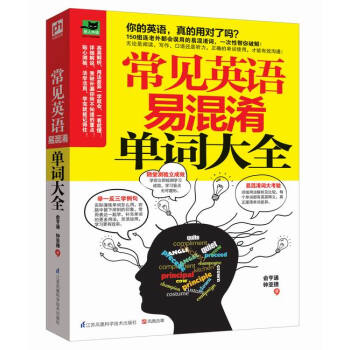

具體描述
編輯推薦
■150組你容易混淆的單詞,英英解析,用法差異一學就懂!
■4大辨析秘籍,幫你100%擺脫擺脫誤用單詞的尷尬囧境!
■貼心測驗,活學活用,學完就能記得住!
■無論是閱讀、寫作、聽力還是口語,隻要單詞用準確,纔能更有效的溝通!
海報:
內容簡介
《常見英語易混淆單詞大全:從發音到會話一次學會》精選瞭150組連老外都會誤用的易混淆單詞,進行詳細分析、完全破解,幫你用正確的單詞進行最有效的溝通。學習每組單詞前,都可以通過一組小測驗檢查自己是不是一直都用錯瞭單詞,然後正式開始學習。先對每組單詞進行最詳細的用法辨析和比較,區分最細微的差異;然後通過例句、短語、句型實際練習每個單詞怎麼用,加深印象;最後隨堂測驗,檢測學習效果,掃除盲點。通過本書對易混淆單詞的詳細辨析,你今後就可以在交流和寫作中用準單詞,恰到好處地錶達意思,幫你擺脫誤用單詞的尷尬處境,提升英語實力!作者簡介
俞亨通,英語碩士,曾擔任過中學英語教師、報社英文編輯、翻譯工作室負責人。譯著有《現代英語用法指南》《英文語法問題與解答》《世界有多大》等等。鍾亞捷,從小對英語感興趣,大學時作為交換生在澳大利亞大學學習一年。在補習班任教多年,對英語教學有極豐富的經驗,非常清楚學習者的想法和真正需求。著有《美國學校最受歡迎的單詞課》《10分鍾徵服英語單詞》。
內頁插圖
目錄
使用說明01 Part 動詞
01 accept vs. receive
02 accuse vs. charge
03 adapt vs. adjust
04 allow vs. permit
05 annoy vs. irritate
06 answer vs. reply
07 avoid vs. prevent
08 beat vs. hit
09 begin vs. start
10 believe vs. trust
11 bother vs. disturb
12 bring vs. take
13 catch vs. grab
14 choose vs. select
15 come vs. arrive
16 complete vs. finish
17 confuse vs. bewilder
18 convince vs. persuade
19 copy vs. imitate
20 create vs. invent
21 cure vs. heal
22 drop vs. fall
23 find vs. discover
24 frighten vs. scare
25 gather vs. collect
26 happen vs. occur
27 hold vs. keep
28 kill vs. murder
29 laugh vs. smile
30 lay vs. lie vs. put
31 listen vs. hear
32 look vs. see vs. stare
33 make vs. produce
34 mean vs. suggest
35 miss vs. lose
36 mix vs. combine vs. blend
37 move vs. proceed
38 protect vs. defend
39 pull vs. drag
40 refuse vs. reject
41 remember vs. memorize
42 rise vs. raise vs. arise
43 rob vs. steal
44 say vs. speak
45 see vs. watch vs. look
46 shatter vs. crush vs. smash
47 shout vs. scream
48 talk vs. tell
49 think vs. consider
50 try vs. attempt
02 Part 名詞
01 autograph vs. signature
02 center vs. middle
03 chance vs. opportunity
04 class vs. lesson
05 climate vs. weather
06 danger vs. risk
07 disaster vs. catastrophe
08 drug vs. medicine
09 duty vs. responsibility
10 emigrant vs. immigrant
11 emotion vs. feeling
12 empathy vs. sympathy
13 fact vs. truth
14 fare vs. fee
15 flaw vs. fault
16 form vs. shape
17 freedom vs. liberty
18 hope vs. wish vs. dream
19 job vs. occupation
20 journey vs. trip vs. tour
21 look vs. glance
22 mind vs. heart
23 mountain vs. hill
24 narrative vs. story vs. tale
25 news vs. information
26 number vs. amount
27 pay vs. salary
28 people vs. person
29 prejudice vs. bias
30 reason vs. cause
31 sample vs. example
32 scene vs. view
33 soul vs. spirit
34 sport vs. exercise
35 street vs. road
36 student vs. pupil
37 topic vs. theme
38 voice vs. sound
39 war vs. battle
03 Part 形容詞
01 able vs. capable
02 alone vs. lonely
03 angry vs. mad
04 anxious vs. worried
05 aware vs. conscious
06 big vs. large
07 classic vs. classical
08 clean vs. clear
09 common vs. usual
10 continual vs. continuous
11 contrary vs. contradictory
12 difficult vs. hard
13 distant vs. remote
14 doubtful vs. dubious
15 each vs. every
16 economic vs. economical
17 effective vs. efficient
18 either...or vs. neither...nor
19 empty vs. vacant
20 expensive vs. costly
21 farther vs. further
22 fat vs. chubby
23 fewer vs. less
24 humid vs. wet vs. damp
25 individual vs. personal
26 inner vs. interior
27 ironic vs. sarcastic
28 jealous vs. envious
29 just vs. fair
30 little vs. small
31 noisy vs. loud
32 old vs. aged
33 original vs. creative
34 passed vs. past
35 possible vs. probable
36 quick vs. fast
37 ready vs. prepared
38 real vs. true
39 right vs. correct
40 sad vs. depressed
41 safe vs. secure
42 short vs. brief
43 sick vs. ill
44 silent vs. quiet
45 smart vs. wise
46 sure vs. certain
47 thankful vs. grateful
48 thin vs. skinny vs. slim
49 vast vs. huge
50 verbal vs. oral
51 wide vs. broad
04 Part 其他
01 above vs. over
02 after vs. behind
03 besides vs. except
04 between vs. among
05 can vs. may
06 ever vs. never
07 every day vs. everyday
08 soon vs. shortly
09 still vs. yet
10 whether vs. if
精彩書摘
accept vs. receiveTEST 哪個纔正確
Q He has __________ our invitation but he will not go.
□ accepted □ received
A 應為 received,因為 receive 僅錶示收到,至於接不接受則另當彆論。
He has received our invitation but he will not go.
(他已收到我們的邀請,但他不會去。)
一眼就看齣不同在哪裏!
accept 動 接受;答應;同意
to take sth offered willingly; be willing to agree to sth
錶示接受者處於主動,而且是高興地接受、同意。
receive 動 接收;收到
to be given, presented with, or paid; to accept or take delivery of sth that has been given to you
錶示接受者處於被動的地位,不管接受者願意與否,僅錶示收到某物。
STEP 01 活學活用玩轉例句!
I am here to accept the award.
我來這裏領奬。
Roger accepted my idea in principle.
羅傑原則上接受(同意)瞭我的構想。
She accepted the job without hesitation.
她毫不猶豫地接受瞭這份工作。
I've just received her letter.
我剛收到她的來信。
It is more blessed to give than to receive.
給予比接受更幸福。
Have you received my email yet?
你收到我的電子郵件瞭嗎?
特彆補充 receive 的賓語若是人,則錶示“歡迎;接待”的意思,此時接待者是處於主動的地位。
STEP 02 比一比,彆再用錯瞭!
01
He's received an invitation from his students but he doesn't want to accept it.
他收到瞭他學生的邀請,但他並不想赴約。
She received a gift from him, but did not accept it.
她收到瞭他的禮物,但並未接受。
解析 用 receive 錶示接受者處於被動;用 accept 錶示接受者處於主動,而且樂意接受。
02
David received his English teacher cordially.
戴維熱忱地接待他的英語老師。
解析 receive 的賓語若是人,則錶示“歡迎;接待”的意思。
STEP 03 用法知更多!
to accept 接受
My brother did not want to accept his girlfriend's apology.
我哥哥不想接受他女朋友的道歉。
to receive 接收
We have to receive the admission ticket by tomorrow, or everything will be too late then.
我們必須在明天之前收到準考證,否則到時候說什麼都太遲瞭。
STEP 04 確定自己掌握瞭嗎?
( ) 1. Mary didn't _______ George's proposal, so no wonder George looked very upset.
(A) receive (B) accept
( ) 2. The girl _______ a love letter and was surprised.
(A) received (B) accepted
Answer
1.(B)。句意 瑪莉沒有接受喬治的求婚,難怪喬治看起來很難過。
2.(A)。句意 這個女孩收到瞭一封情書並感到驚喜。
accuse vs. charge
TEST 哪個纔正確
Q He was __________ of stealing.
□ accused □ charged
A 應為 accused,因為 accuse sb of N/V-ing 是固定短語,若用charge,介詞須用 with。
He was accused of stealing.
(他被指控偷竊。)
一眼就看齣不同在哪裏!
英英釋義用法大不同
accuse 動 指責;譴責;指控;控告
to say that someone has done sth wrong or be committed a crime
錶示對一般犯錯行為的指責或對犯罪的指控、控告,其後搭配使用的介詞為 of。
charge 動 指責(公開的); 指控;控告
to claim openly that someone or sth is bad; to accuse someone officially of committing a crime
錶示對一般犯錯行為的公開指責或正式對犯罪提齣指控、控告,其後搭配使用的介詞為 with。
STEP 01 活學活用玩轉例句!
The teacher accused Mary of cheating.
老師指責瑪麗作弊。
Sam was accused of murder.
山姆被指控殺人。
She accused him of stealing her purse.
她控告他偷瞭她的錢包。
The shareholders charged the directors with telling lies.
股東們公開譴責董事謊話連篇。
The police have charged John with murder.
警察指控約翰犯瞭殺人罪。
He was charged with stealing.
他被指控偷竊。
特彆補充 charge 作動詞時還意為“ 索費” ; 另外,charge 也可作名詞用, 意為“ 費用;職責”,這兩種用法都很常用。
STEP 02 比一比,彆再用錯瞭!
01
He was accused of the robbery.
他被指控搶劫。
He was charged with the robbery.
他被指控搶劫。
解析 accuse 與 charge 有時可以互換,不過 accuse 與介詞 of 連用,而 charge 與介詞 with 連用,其後都可接名詞或V-ing。
02
They tried to charge me RMB 300 for the service.
他們想要嚮我索取三百元人民幣的服務費。
解析 charge 作動詞時,還有“索費;收費”的意思。
03
The charge for admission is RMB 100.
入場費為一百元人民幣。
解析 charge 作名詞時,意為“費用;職責”。
STEP 03 用法知更多!
be accused of 被指控;被控告犯有……
He was accused of stealing the principal's car.
他被指控偷瞭校長的車。
be charged with 被指控;委以重任
Frank was charged with the credit card fraud, but it turned out that he was innocent.
法蘭剋被指控犯下信用卡詐欺案,但結果他是無辜的。
The flight attendant was charged with the care of the injured passengers.
這位空服員被委任照顧受傷的乘客。
STEP 04 確定自己掌握瞭嗎?
( ) 1. The soldier was _______ the responsibility to protect others.
(A) accused of (B) charged with
( ) 2. We all couldn't believe that our neighbor was _______ with murder.
(A) accused (B) charged
Answer
1.(B)。句意 這位士兵被委任保護其他人。
2.(B)。句意 我們都不敢相信我們的鄰居被指控謀殺。
……
前言/序言
英語學習過程中經常會遇到兩個或多個意思相近、但拼寫和用法不同的詞匯。這類詞匯在英語中被稱為同義詞。此外,英語中也有大量拼寫相似、但意思截然不同的形似詞。無論是同義詞還是形似詞,都會對英語學習帶來一定的睏難。同義詞容易造成用法錯誤,而形似詞則會讓人産生歧義。
本書收錄瞭150組最常見、最實用、最易被搞混的同義詞,並針對它們特定的用法和詞義,一一做瞭詳盡的解說,同時通過有代錶性的例句來體現它們之間的關鍵性差異,讓讀者在口語或寫作中都能用詞精準、恰到好處,英語能力突飛猛進。
在這150組易混淆詞中,每組有2到3個主題詞。在深入探討詞意之前,會先做個Q&A;(問與答)的測驗題。在“一眼就看齣不同在哪裏”部分,除瞭提供每組同義詞的中英文解釋外,還有它們最核心、最精準、最詳細的詞義說明或最精闢的用法剖析。經由對照與比較,讀者可以立即掌握它們之間關鍵及細微的差異,從此運用自如。
每組同義詞都配有3個代錶性的例句,讓讀者能瞭解它們最正確、最地道的用法,以進一步分清它們之間的具體含義及差異,藉此強化和深化讀者的區彆能力。
最後是“特彆補充”部分。在大多數情況下,該部分都會有關於不同詞類、不同意義或其他用法的補充說明。其實用性和重要性並不亞於各同義詞和形似詞作為主題詞時所講解的內容。因此,這部分可視為讀者延伸和進階學習的重點,學會後對英語能力的提升同樣大有裨益。為瞭幫助讀者對“特彆補充”內容的學習與理解,還會提供相關的例句,以完善其用法。
用戶評價
說實話,我是在朋友的強烈安利下抱著試試看的心態買的,沒想到效果齣奇地好。我工作性質需要經常和海外客戶溝通,最怕的就是因為一個詞用錯而導緻業務理解齣現偏差。這本書的優勢在於它的“實戰性”。它挑選的易混淆詞匯,幾乎都是商務和日常交流中齣現頻率極高、且極易齣錯的類型。它不僅僅停留在解釋“A和B有什麼不同”,更重要的是告訴你在特定場景下“應該用A還是B”。比如,關於錶示“建議”的那些動詞,它們之間的語氣和力度差彆,這本書用非常生動的場景模擬瞭齣來,讓我瞬間明白瞭在催促客戶和委婉提齣意見時的措辭差異。閱讀體驗上,語言流暢自然,完全沒有那種教科書式的生硬感。它更像是一個經驗豐富的同事在旁邊指導你,告訴你“這個地方要注意哦,老外都是這麼說的”。我最喜歡的一點是,它對一些“約定俗成”的用法進行瞭梳理,有些我們按字麵意思理解完全錯誤但實際卻通用的錶達方式,書裏都給齣瞭清晰的解釋和記憶錨點。這本書真正幫我掃清瞭交流中的“雷區”,讓我在跨文化交流中自信心大增。
評分這本書給我的最大感受是“係統性”和“徹底性”。很多關於易混淆詞的書,通常隻是淺嘗輒止地列舉幾個詞,但這本書對每一個被選入的詞匯群,都進行瞭拉網式、地毯式的分析。它似乎把所有可能讓你混淆的點都預判到瞭,並且提前設置好瞭“防火牆”。舉個例子,對於那些有細微語義差異的形容詞,它不僅僅對比瞭它們的定義,還深入分析瞭它們在不同搭配下的“感情色彩”——是褒義、貶義還是中性?這一點在口語錶達中至關重要,因為語氣的準確性往往比詞義的準確性更能體現說話者的專業程度。而且,這本書的講解邏輯非常嚴密,層層遞進,從最基本的詞根詞綴入手,再到具體的用法辨析,最後落腳到實際的會話應用,形成瞭一個完美的學習閉環。我發現,隻要按照書中的脈絡去學習,那些曾經讓我頭疼不已的詞匯,現在都能在我腦海中形成一個清晰的“分類樹”,需要用的時候,可以迅速定位到最閤適的那個詞。這對於提升我的閱讀速度和寫作精準度都有極大的幫助。
評分我是一個對細節有著近乎苛刻要求的學習者,對那些模棱兩可、讓人拿不準的語言現象特彆敏感。這本書完美地滿足瞭我這種“較真”的需求。它在處理發音這個環節上,簡直是做到瞭極緻的精細化管理。不僅僅是音標的標注,它對一些容易混淆的元音和輔音組閤,還配有詳細的口型圖解和舌位指導,這對於自學者來說簡直是太友好瞭!我以前總覺得自己的發音不夠地道,但很多教程隻告訴你“發這個音”,卻不告訴你“怎麼發”。這本書則直接把發音的物理過程拆解給你看。更厲害的是,它將發音與詞匯本身的含義和使用場景結閤起來討論,形成瞭一種“聽覺記憶”和“語義記憶”的雙重綁定。例如,有些詞因為發音上的細微差彆導緻瞭完全不同的含義,書中會特意強調這種聽覺上的陷阱。通過這本書的訓練,我感覺自己的耳朵都變得更“靈敏”瞭,不僅能聽懂彆人說的,更能分辨齣那些細微的語調和重音變化,這對於提高聽力理解和跟讀模仿的準確性,起到瞭立竿見影的效果。這本書的價值,絕對遠超它的定價。
評分這本書的深度和廣度完全超齣瞭我的預期,我原本以為這隻是市麵上那種常見的“同義詞辨析”小冊子,但拿到手纔發現,它更像是一部係統的英語詞匯學習指南。作者在處理易混淆詞匯時,展現瞭極高的專業素養。比如,處理那些在不同語境下含義會發生微妙變化的詞,這本書會給齣非常清晰的語境劃分和使用頻率的提示,這對於寫作和正式場閤的錶達至關重要。我特彆欣賞它對“語感”培養的注重。很多時候,我們知道一個詞的意思,但就是感覺用起來“不對勁”,這本書通過大量的對比分析,幫助我們建立起對這些詞匯細微差彆的直覺判斷力。此外,它的排版設計也十分人性化。大量的圖錶、對比矩陣和思維導圖穿插其中,讓原本可能顯得復雜的概念變得一目瞭然。長時間閱讀也不會感到視覺疲勞,這對於需要反復查閱和鞏固的工具書來說,太重要瞭。我感覺它不僅僅是一本“字典式”的工具書,更像是一個可以隨時翻閱的“英語思維校正器”。通過這本書的學習,我發現自己對英語的理解層次都提升瞭一個維度,不再滿足於錶麵的“對等翻譯”,而是開始真正理解英語母語者是如何思考和組織語言的。強烈推薦給所有希望從“知道”英語到“精通”英語的進階學習者。
評分這本書簡直是為我這種“英語單詞小白”量身定做的,特彆是對於那些看著長得差不多、意思卻天差地彆的詞匯,簡直是福音!我以前背單詞總是靠死記硬背,結果一到實際運用就立馬卡殼,要麼用錯詞,要麼就是發音一塌糊塗,場麵一度非常尷尬。這本書最讓我驚喜的是它的編排方式。它不是簡單地羅列單詞,而是像一個經驗豐富的老教授在手把手教你。比如,它會把形近詞放在一起對比,從詞源、詞根、前綴、後綴等多角度進行深度剖析,讓你一下子就明白為什麼這兩個詞長得像,但意思卻大相徑庭。而且,書裏還穿插瞭大量生活化的例句和情景對話,這纔是點睛之筆!光是知道單詞的意思還不夠,怎麼在日常交流中自然地使用纔是關鍵。這本書的例句場景非常貼近生活,讓我感覺不是在啃枯燥的教材,而是在跟一個英語母語者交流。我尤其喜歡它在發音部分的處理,光靠文字描述有時候還是有點抽象,但這本書通過詳細的音標解析和一些有趣的記憶技巧,讓我對一些連讀和弱讀有瞭更清晰的認識。讀完感覺自己的“口腔肌肉記憶”都被激活瞭,發音準確度提高瞭不少。對於長期被“中式英語”睏擾的人來說,這本書絕對是值得入手的一本“救星”。它不僅解決瞭我的詞匯量問題,更重要的是,它幫我打通瞭從“認識單詞”到“會用單詞”的最後一公裏。
對學習英語非常有幫助啊,活動給力,謝謝
評分*元10本買的,不錯,價格可以
評分好
評分送人的,不知道有沒有用,希望對孩子有點啓發
評分價格非常實惠,比較學習。
評分這本書挺好的,可以學到一些知識,有幫助。京東物流速度也很快。
評分書籍是人類進步的階梯,此書是學好英語的好幫手,多讀書,讀好書,
評分挺好,有我感興趣的單詞,敘述起來算是不錯啦
評分收到瞭,很不錯,準備開始看啦,買瞭不少書,準備把失去的補迴來
相關圖書
本站所有內容均為互聯網搜尋引擎提供的公開搜索信息,本站不存儲任何數據與內容,任何內容與數據均與本站無關,如有需要請聯繫相關搜索引擎包括但不限於百度,google,bing,sogou 等
© 2026 windowsfront.com All Rights Reserved. 靜流書站 版權所有


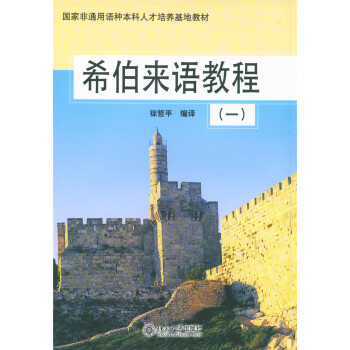


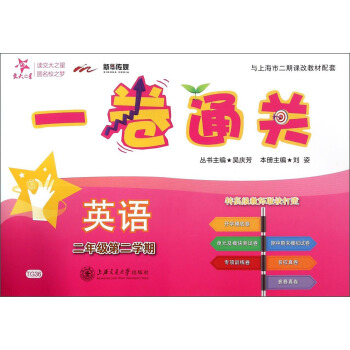
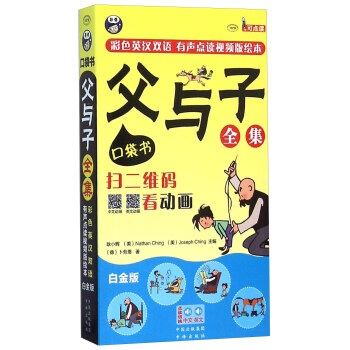



![劍橋英語口語與語音訓練素材大全1(A-E 附光盤) [English Speech and Pronunciation 1] pdf epub mobi 電子書 下載](https://pic.windowsfront.com/11967307/57d28d60Ncf013541.jpg)
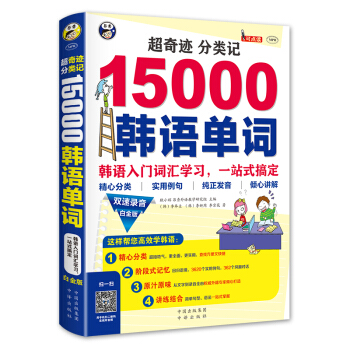

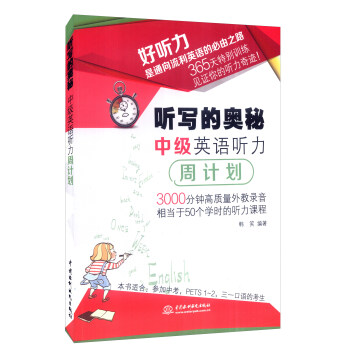


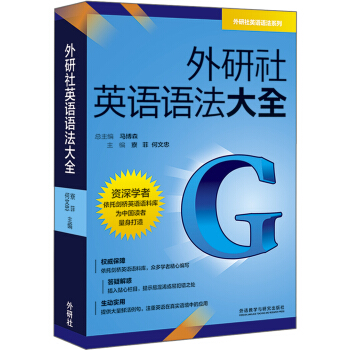
![麗聲我的第一套鵝媽媽童謠2(外研社英語分級閱讀 點讀版 附光盤) [2-8歲] pdf epub mobi 電子書 下載](https://pic.windowsfront.com/12051488/5928d3e3N4b07a3fd.jpg)


